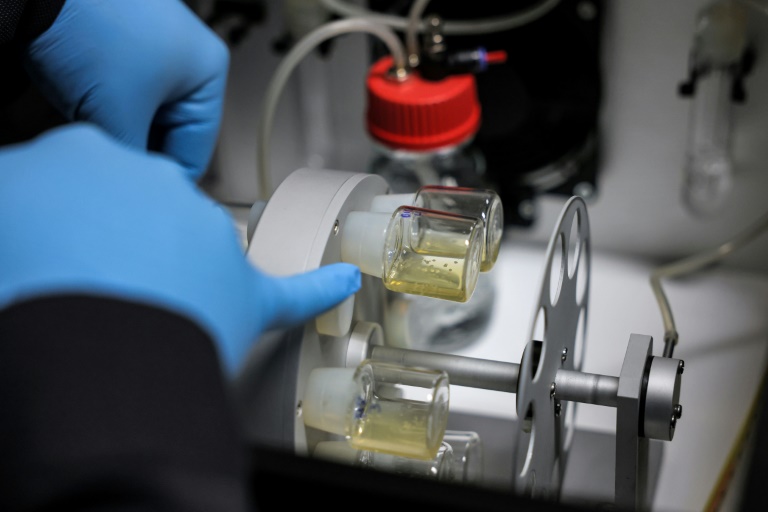Science
New Mitochondrial Therapies Promise Breakthroughs in Health

An innovative approach to treating mitochondrial dysfunction is emerging from Minovia Therapeutics, as the biotechnology company advances its unique cell therapies. Mitochondrial dysfunction has been linked to a range of serious health conditions, including genetic diseases and age-related disorders. Dr. Natalie Yivgi-Ohana, Co-Founder and CEO of Minovia, discusses the company’s mission and the potential impact of its groundbreaking therapies.
Minovia Therapeutics focuses on developing novel mitochondrial cell therapies designed to restore mitochondrial function, a critical aspect that can prevent various health issues such as neurodegeneration, muscle weakness, metabolic disorders, anemia, and immune system decline. The company’s leading product, MNV-201, employs a technique known as Mitochondrial Augmentation Technology (MAT) to introduce healthy mitochondria into a patient’s own stem cells. This innovative therapy is currently undergoing clinical trials for two serious conditions: Pearson Syndrome, a rare pediatric disorder, and low-risk Myelodysplastic Syndrome (MDS), an age-related blood disorder.
Dr. Yivgi-Ohana emphasizes the significance of targeting diseases like Pearson Syndrome and MDS. Initially, the company explored direct injection of mitochondria into muscles in preclinical models, focusing on critical limb ischemia. However, regulatory challenges led to the development of an ex-vivo cell therapy method. By enriching hematopoietic stem cells with placental mitochondria before reintroducing them into patients, Minovia aims to improve outcomes for individuals with rare genetic mitochondrial diseases.
The company has made substantial investments in identifying blood-based biomarkers to detect mitochondrial dysfunction. These biomarkers have been validated in Pearson and MDS patients and will soon be assessed in elderly populations undergoing MAT treatment.
Dr. Yivgi-Ohana notes the therapy’s potential applications in longevity and regenerative medicine. Mitochondrial dysfunction is a significant contributor to aging, as mutations in the mitochondrial genome accumulate over time. Preliminary studies in aging mice suggest that MNV-201 may reverse age-related decline in various systems, improving overall health and longevity. In particular, a single administration of the therapy has shown promising results in enhancing kidney function, mobility, and muscle strength.
Minovia’s recent clinical milestones indicate significant progress. The company’s lead candidate, MNV-201, is currently in a Phase 2 clinical trial in Israel for Pearson Syndrome, with four out of six patients already treated. Preliminary safety and efficacy signals have been observed. The U.S. Food and Drug Administration (FDA) has granted Fast Track Designation for both Pearson Syndrome and MDS and awarded Rare Pediatric Disease Designation for Pearson Syndrome. These designations streamline the approval process and acknowledge the urgent need for new treatment options.
In addition to its clinical trial work, Minovia has utilized MNV-201 and MNV-101 in compassionate use programs. MNV-201 has been administered to patients with Kearns-Sayre Syndrome and Leigh Syndrome, with two individuals showing clinical improvement. Meanwhile, a 14-year-old girl with severe epilepsy experienced complete resolution of her episodes following four months of MAT treatment.
Looking ahead, Minovia plans to expand its clinical operations into the U.S., focusing on both Pearson Syndrome and MDS. The company aims to conduct pivotal studies to gain FDA approval for the first mitochondrial-based therapy. Dr. Yivgi-Ohana expresses excitement about the potential impact of their technology, stating, “We can’t wait to see it make a real difference for patients.”
As Minovia Therapeutics continues to pioneer advancements in mitochondrial therapies, its work underscores the importance of addressing mitochondrial dysfunction in both rare and common diseases. The company’s efforts not only highlight a significant step forward in the field of regenerative medicine but also open new avenues for improving health outcomes globally.
-

 Science3 months ago
Science3 months agoToyoake City Proposes Daily Two-Hour Smartphone Use Limit
-

 Health4 months ago
Health4 months agoB.C. Review Reveals Urgent Need for Rare-Disease Drug Reforms
-

 Top Stories4 months ago
Top Stories4 months agoPedestrian Fatally Injured in Esquimalt Collision on August 14
-

 Technology3 months ago
Technology3 months agoDark Adventure Game “Bye Sweet Carole” Set for October Release
-

 World3 months ago
World3 months agoJimmy Lai’s Defense Challenges Charges Under National Security Law
-

 Lifestyle4 months ago
Lifestyle4 months agoVictoria’s Pop-Up Shop Shines Light on B.C.’s Wolf Cull
-

 Technology3 months ago
Technology3 months agoKonami Revives Iconic Metal Gear Solid Delta Ahead of Release
-

 Technology3 months ago
Technology3 months agoApple Expands Self-Service Repair Program to Canada
-

 Technology3 months ago
Technology3 months agoSnapmaker U1 Color 3D Printer Redefines Speed and Sustainability
-

 Technology3 months ago
Technology3 months agoAION Folding Knife: Redefining EDC Design with Premium Materials
-

 Technology4 months ago
Technology4 months agoSolve Today’s Wordle Challenge: Hints and Answer for August 19
-

 Business4 months ago
Business4 months agoGordon Murray Automotive Unveils S1 LM and Le Mans GTR at Monterey









